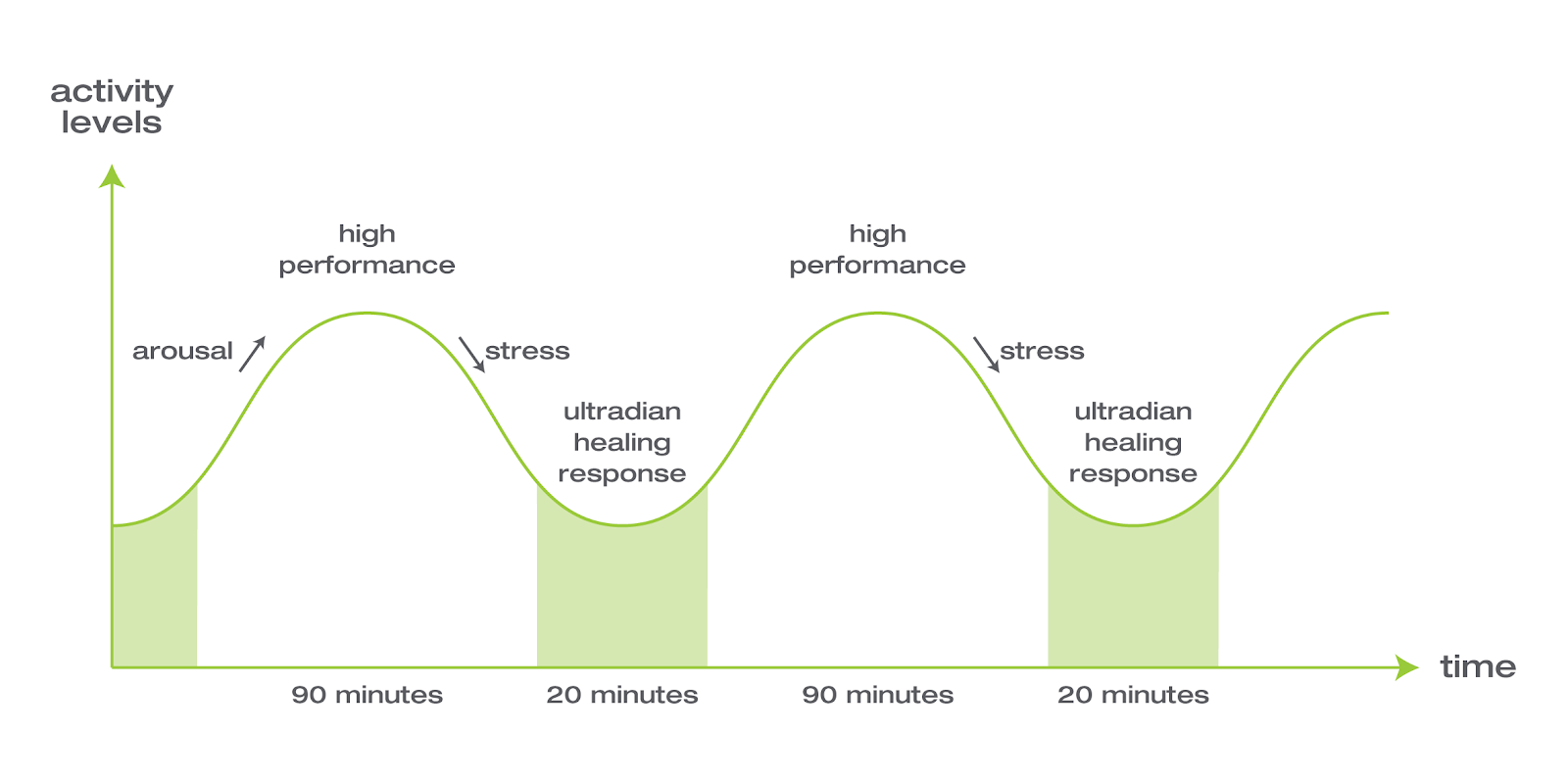
Remote sales teams are widespread right now due to the global pandemic.
Most remote sales teams are adjusting, albeit with a few aches and pains, to the new status quo.
But there are still remote teams that are struggling with the reality that the team is connected by nothing more than Slack and other assorted software.
COVID-19 and Managing a Remote Sales Team – Finding that proverbial “new normal”
The impetus for this article are the lockdown measures and the pivot to remote work by many businesses.
It’s likely that even as the measures to contain the pandemic subside, businesses that have shifted to remote work will maintain a remote work approach.
Gallup data from three years ago reported an increase in productivity for workers who were mostly remote.
The optimal engagement [productive and connected] boost occurs when employees spend 60% to less than 80% of their workweek — or three to four days — working off-site.
Fast Company also extols the benefits of remote work.
The past few years have produced conclusive evidence that employees who spend a bulk of their working hours outside of the office are vastly happier and more productive.
After watching remote work soar by 400% in the past decade, the data-backed findings of increased productivity, decreased greenhouse gas emission, higher levels of wellness, and improved morale are a given.
What’s the latest twist in this trend?
If you’ve recently gone remote, you’re more likely to stay remote. Plus, remote hiring is more commonplace, too, as Fortune reports.
Gartner research during April of 2020 reports that 41% of new remote workers will probably keep working remotely so once quarantine restrictions have been lifted.
CNBC is so confident of the permanence of the remote work shift, that they posit it as the “‘tipping point’ in favor of working from home.”
Some of us will be so sick of social distancing after this is all over that we’re going to spend more time outside the dang home than ever before.
But at the same time, I see a future in which a remote sales team is the new norm.
One upside of remote sales teams? It humanizes things.
I’ve been working remotely for eleven years (with only one stint in Europe directing an in-office team).
I also have four kids.
You see where this is going?
I’ve had my share of kids screaming, kids walking in on meetings, kids having potty accidents, kids not going down for their naps, kids kicking computer cords attached to computers while said computers are on a video call.
It’s all happened.
I no longer feel embarrassed about such things.
Yesterday, during a team meeting, one team member cuddled with her three-year-old while we discussed marketing KPIs.
A few days prior, I chatted about a project with a colleague as my seven-year-old son waved to him in the background.
My CEO’s toddler has had cameos during our Zoom meetings.
My academic spouse whose anthropology classes are online, has heard crying children in the background ever since her Harvard professor started broadcasting lectures from his home.
I’m going to avoid using the phrase “we’re all in this together,” because…cliche.
But, on the other hand, many in the professional cohort have a shared experience as family, life, work, and routine mashes up into a glorious mess of human interaction.
So, if you really want to “be real” with people on sales calls, then, hey, this remote sales team thing is probably perfect, right?
So, about those remote sales team management tips.
We created this resource to help remote sales teams that want the best and most insightful strategies on managing remote sales teams.
Instead of relying on a freelance copywriter and a modicum of Google searches, we’ve interviewed senior members of our own sales teams to glean their insights, earned by years of remote sales experience.
The advice you read below comes from senior sales leaders — 30 years in the industry — and those who are earlier in their careers — two years or so.
All of the advice is founded on real-world remote experience.
Here, in no particular order, are the sales team management strategies that you can begin implementing immediately.
1. Stay on the same page all the time.
Scott Haney, ChiliPiper’s revops leader, makes this his top tip:
Documentation and communication are extremely important to making sure all sales reps are on the same page
Scott knows a thing or two about sales, achieving SDR of the year and overshooting quotas as a sales rep.
If you err, err on the side of overcommunication rather than undercommunication.
Hop into our Slack for a day, and the term “communication” takes on a whole new meaning. We document everything, almost to a fault, because it’s better to have it if you want it than not have it when you need it.
2. Do the same thing with a remote sales team that you would do with a non-remote team.
This is Scott’s second tip.
Treat it just like you would at an on-site environment. Hold weekly 1 on 1’s, schedule daily stand-ups, and get creative to celebrate wins.
Why would we discard what we do onsite just because we’re remote?
Obviously, we can’t do group hugs or anything, but we can hold onto some of the practices that help to cement and motivate sales teams.
- Daily stand up meetings
- Weekly one-on-one meetings between SDRs and team leads
- Slack channel updates on closed deals or other wins
- Coaching and advice using Slack or other platforms
As you make the transition from non-remote to remote, try to replicate as many of the onsite practices as possible.
3. Trust your team members to create their own optimal schedule.
This advice comes from Liz Pouya, who recently won Chili Piper’s coveted unicorn award for her outstanding work.
Liz, like many remote workers, sees the value of piloting the course of one’s own day. Doing so is more than just time management genius. It’s also a gesture of trust when encouraged by a remote sales team manager.
Here’s how Liz puts it.
Working hours will be different for each individual and that is okay. Not everyone fits the 8-5 mold.
The most common fear managers have with remote teams is that they cannot trust their teams are doing their job all day. With the right employees, however, trusting that they can and will work how and when they want is key to seeing them produce at their peak potential and maintaining their motivation.
If starting work at 6am and then taking a 2 hour workout lunch break when not otherwise busy allows them to accomplish the most in their day, then let them do it!
It may sound controversial, but working hours are a personal thing.
Of course, it goes without saying that millions of workers have roles in which adhering to an external routine is of extreme importance — pilots, sanitation workers, teachers, really most of the workforce.
But for those who have the privilege of doing so, setting your own schedule is an enormous enhancement to productivity.
Everyone has their own ultradian rhythm, the time of day where they are at their creative and energetic peak.

These rhythms vary from person to person. Therefore, if managing a remote sales team, give each team member the freedom to experiment with their own schedule to find when they work best
4. Hire People You Trust
Dave Eaddy’s experience in remote sales has given him insight into one of the intangibles of managing a remote sales team — trust.
Start by hiring people you trust. Trust is huge for a remote workforce and I think managers need to give their employees the benefit of the doubt.
If a rep isn’t doing their job, the proof is in the pudding at the end of the month. Otherwise, trust goes a long way to creating a healthy remote workplace environment.
Trust is at the core of any type of working relationship between managers and reports, but the issue gains much more importance in the context of remote work.
The prototypical micromanagement arrangement simply doesn’t hold up in a remote context.
In order for remote work to work, managers have to trust their sales reps. It is true that trust is built over time, especially for some personalities and temperaments.
In this case, sales managers would do well to hire people whom they already know and with whom they have built a history of a trustworthy working relationship.
5. Prioritize Communication
As simple as it sounds, communication is the sine qua non for a remote workforce.
Sales teams, especially, need the tools and space to give communication the place it demands.
This remote sales team management tip comes from Jared Wexler.
Communication is key, finding ways to share company knowledge without having an office environment is extremely important.
Weekly meetings, internal newsletters, and group chats Slack, MS Teams, etc.) are a great way to close the interdepartmental knowledge gap.
It’s up to sales managers to facilitate this communication, encouraging and even mandating a high volume of communication among the sales team.
In traditional office environments, a lot of communication happens non-verbally. We see, hear, feel, and sense what a person is transmitting more than just through their words.
Research suggests that as much as 93% of communication is transmitted non-verbally.

While such numbers may have a degree of arbitrariness, it’s true that we lose a degree of meaning and depth in communication when we’re not in physical proximity to someone.
Lacking in-person arrangements, we need to make up for the communication deficit by employing more channels, holding more meetings, and instituting a higher frequency of communication than we might be used to.
6. Always Be Learning
You know that ABC sales aphorism, Always Be Closing? Let’s try another one — always be learning.
Learning about sales
Learning about closing techniques
Learning about prospecting
Learning everything you can to improve yourself and your professional ability
Michael Tuso is an autodidact and sales influencer, and it shows.
It’s not just his sales success record that shows his commitment to improvement, but the thousands of sales reps that he influences on LinkedIn, podcasts, articles, and speaking events.
My biggest tip for managing a remote team is to instill a culture of collective learning and growth.
Whether it’s peer-to-peer led trainings that everyone attends once a week, daily huddles, small group call coaching sessions weekly, or meetings to specifically put together the collective company mindshare to elevate cadences and prospecting, the instilling and fostering of learning has been our secret weapon to success in managing a remote team.
As Tuso’s tip indicates, the medium of improvement can take many forms — from daily huddles to individual meetings.
As remote sales managers, we can’t bring the team in for an actual pizza party or gong-ringing ceremony. But there are legion other ways to implement learning.
What’s important is the culture. Make learning and growth part of the identity of your management practice, and you’ll see a vast improvement in the performance and morale of your sales team.
7. Trust and Autonomy
For many sales managers, some of the qualities that make them good managers are the same qualities that might make them terrible managers — delegation and organization.
Delegation is good, but if it morphs into distrustful micromanagement it’s bad.
Organization is good, but if it slides into control it’s bad.
Matthew Roberts offers the counterpoint — essential qualities for remote sales team managers that wipe control and micromanagement off the table.
Hire for trust and autonomy above all else. If you can’t trust your team you’re in for an awful time regardless, but it’s exponentially worse in a remote atmosphere.
It’s impossible and unnecessary to micromanage when your people are in multiple locations and time zones. Therefore you have to focus on setting up your team with the right training, education, tools, and motivation in order to have them go out on their own and get the job done.
Therefore, more than anything, trusting them to use their time wisely and be able to push themselves is of utmost importance.
8. Sales Manager as Performance Designer
Nicolas Vandenberghe’s experience in sales spans three decades. As the CEO and founder of Chili Piper, the company exists because of his knowledge and devoted work.
Here is Vandenberghe’s advice for managing a remote sales team.
There are two things that a sales leader expects from sales floors where all the reps sit together: direct emulation and learning by imitation.
Working remotely, those are gone, so they need to be replaced by
– More trust in the reps self-motivation and
– More focus and resources on professional development.Basically, the sales coach goes from cheerleader to performance-building plans designer.
This is the future.
How to Manage a Remote Sales Team: Conclusion
Themes like trust, communication, and autonomy are paramount, as evidenced by their frequent mention above.
Whether you’re managing a remote sales team for the short-term or for the long-term, give these tips some consideration.
Originally published here.